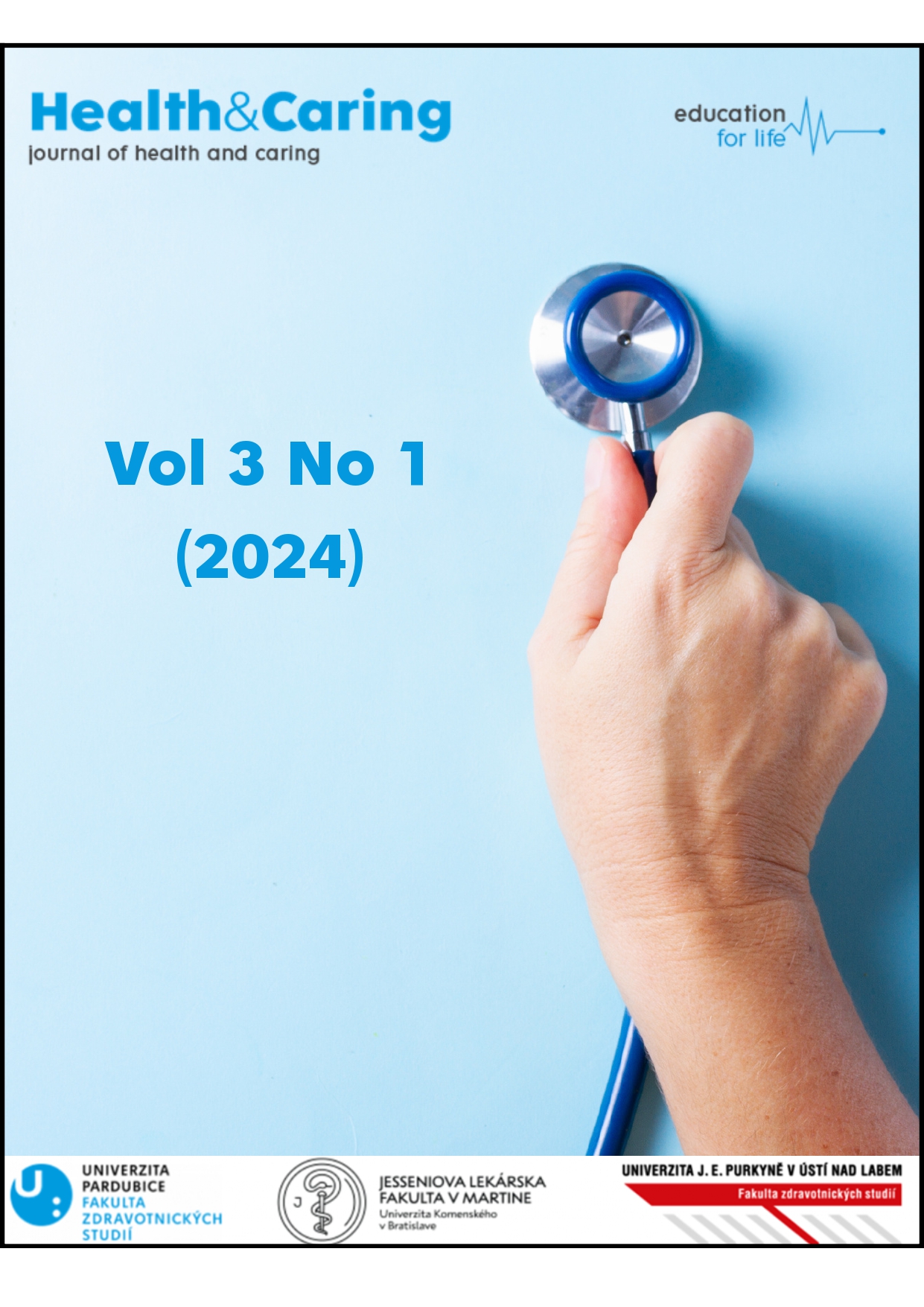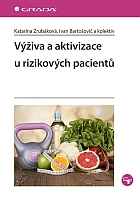Cardiovascular Risk in Patients Admitted to the Internal Department: a Cross-Sectional Study
DOI:
https://doi.org/10.46585/hc.2024.1.2513Keywords:
fatální kardiovaskulární příhoda, kardiovaskulární onemocnění, kardiovaskulární riziko, nomogram SCOREAbstract
Introduction: The SCORE (Systematic Coronary Risk Evaluation system) is one of the most widely used scoring systems for the Czech population. This system identifies possible fatal cardiovascular events in the next 10 years or at the age of 60 years, therefore it is possible to detect asymptomatic young individuals at low cardiovascular risk but with an unhealthy lifestyle, which may shift to high cardiovascular risk.
Aim: The aim of the study was to determine the percentage of cardiovascular risk in patients admitted to an internal medicine ward (n = 64, 44% female; 56% male) from April 1 - November 1, 2023.
Methods: Inclusion criteria for inclusion in the study: hospitalization from April 1 - November 1, 2023; signed written informed consent; untreated cardiovascular disease; undiagnosed type I and II diabetes mellitus or undiagnosed renal failure. Data were obtained by personal interview (age, smoking abstinence), after which systolic blood pressure was measured. Subsequently, venous blood was drawn and total cholesterol (mmol/l) was determined. All these data were then compared with the SCORE nomogram for high-risk countries.
Results: The results showed that more than 57 % of the respondents were at no risk of fatal cardiovascular events, 18,8 % were at intermediate risk and 23,5 % were at high risk.
Conclusion: The average risk of developing a cardiovascular event in the next 10 years or at the age of 60 years was in the low range (0-2 %) for most patients, but further research and a larger sample of patients are needed to determine the exact risk factors
Downloads
References
Csenteriová, O., Jancsó, Z., Szöllösi, G. J., Andréka, P. & Vajer, P. (2022). Differences of cardiovascular risk assessment in clinical practise useing SCORE and SCORE 2. Open heart, 9(2), e002087. 10.1136/openhrt-2022-002087
ESC/ESH Guidelines (2018). Clinical Practice Guidelines for the Management of Arterial Hypertension. https://www.escardio.org/Guidelines/Clinical-Practice-Guidelines/Arterial-Hypertension-Management-of
Filipovský, J., Widimský jr., J. & Špinar, J. (2014). Summary of 2013 ESH/ESC Guidelines for the management of arterial hypertension. Prepared by the Czech Society of Hypertension/Czech Society of Cardiology. Cor et Vasa, 56, e494-e518. http://www.sciencedirect.com/science/article/pii/
S0010865014000769
Musil, V., Špinar, J., Pozdíšek, Z., Ludka, O., Lokaj, P., Felšöci, M., Plachý, M., Balcárková, Janoušová, E., Jarkovský, J., Pavlík, T., Schwarz, D. & Dušek, L. (2009). Kdo káže vodu a pije víno – kardiovaksulární riziko v medicínské populaci v projektu. Kardiologická revue – Interní medicína, 11(4), 204-208. https://www.prolekare.cz/casopisy/kardiologicka-revue/2009-4/kdo-kaze-vodu-a-pije-vino-kardiovaskularni-riziko-v-medicinske-populaci-v-projektu-31358
Powellová, K. L., Stephens, S. R. & Stephns, A. S. (2021). Cardiovascular risk factor mediation of the effect of education and Genetic Risk Score on cardiovascular disease: a prospective observational cohort study of the Framingham Heart Study. BMJ open, 11(1), e045210. https://doi.org/10.1136/bmjopen-2020-045210
Rojíček, M. & Štygletová, T. (2021). Příčiny smrti v roce 2020. Český statistická úřad. https://www.czso.cz/documents/10180/163378569/csu_tk_priciny_smrti_prezentace.pdf/b87f04e6-ca7a-4c3e-9a1b-8eef3fe1c32d?version=1.0
Samanivan Bavarsad, P., Kheiri S., & Ahmadi, A. (2020). Estimation of the 10-Year Risk of Cardiovascular Diseases: Using the SCORE, WHO/ISH, and Framingham Models in the Shahrekord Cohort Study in Southwestern Iran. The journal of Tehran Heart Center, 15(3), 105–112. https://doi.org/10.18502/jthc.v15i3.4219
Score2 working group and ESC Cardiovascular risk collaboration (2021). SCORE2 risk prediction algorithms: new models to estimate 10-year risk of cardiovascular disease in Europe. European Heart Journal. 2021, 41(25), 249-2454. https://doi.org/10.1093/eurheartj/ehab309
Tůmová, E. & Vráblík, M. (2017). Stratifikace kardiovaskulárního rizika a nové cílové hodnoty sérových lipidů. Kardiologická revue – Interní medicína, 19(3), 152-156. https://www.kardiologickarevue.cz/casopisy/kardiologicka-revue/2017-3/stratifikace-kardiovaskularniho-rizika-a-nove-cilove-hodnoty-serovych-lipidu-61751
Všeobecná Zdravotní Pojišťovna České republiky (©2023). Kardiovaskulární onemocnění. https://www.vzp.cz/pojistenci/prevence/nemoci/kardiovaskularni-onemocneni
World Health Organization (©2023). Cardiovascular diseases. https://www.who.int/health-topics/cardiovascular-diseases#tab=tab_1
Zikmund Galková, L., Špinar, J. & Ludka, O. (2015). Skórovací systémy preventivní kardiologie. Kardiologická revue – Interní medicína. 17(2), 112-116 https://www.kardiologickarevue.cz/casopisy/kardiologicka-revue/2015-2/skorovaci-systemy-preventivni-kardiologie-52098
Downloads
Published
How to Cite
Issue
Section
License
Copyright (c) 2024 Aneta Hujová, Miroslava Zemanová

This work is licensed under a Creative Commons Attribution-NonCommercial 4.0 International License.
Accepted 2024-06-14
Published 2024-06-27










